Boston Terrier
The Boston Terrier is a popular, small-sized dog breed that originated in America. This dog was developed in the late 1800s by a crossing Bulldog and now-extinct White English Terrier. First Boston Terrier was named Judge, and he represents the founding dog of the Boston Terrier breed.
Before you start searching for Boston Terriers breeders, explore this dog breed and learn everything there is so you can be sure that this is the right dog for you.
FUN FACT: Although they are called Boston Terriers, these dogs are not technically terriers.

Height:
15–17 in (38–43 cm)

Weight:
12–25 lb (5-11 kg)

Origin:
USA

Life Expectancy:
11-13 years
Dog Breed Characteristics
Boston Terriers are compact, well-proportioned dogs with a square head, short muzzles, and large, expressive eyes. Ears are usually small and erect, but sometimes it happens that a Boston Terrier is born with floppy ears that are then cropped.
The tail is short. It is a relatively “young” breed, but nevertheless, it is recognized and registered with the majority of the world’s cynology associations. There is a breed standard, and since this breed is American-made, we will focus on the AKC standard first.
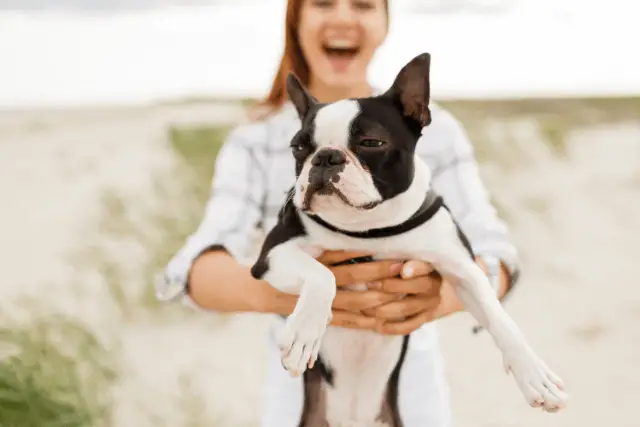
Grooming and care
The Boston Terrier has a short, sleek, and shiny coat that sheds moderately. Boston Terriers are low maintenance and require only weekly brushing with a soft bristle brush to get rid of dead hair and keep the coat beautiful. Regular nail trimming and teeth brushing are also needed.
They are a little more demanding when it comes to eye care. Their face and area around the eyes should be washed every day, and their eyes should be checked for signs of redness or irritation. The Boston Terrier’s coat comes in three colors: black, seal (black with the red cast), and brindle.
They have white markings on the muzzle, face blaze, and chest. These white markings make this dog look like he is wearing a tuxedo.
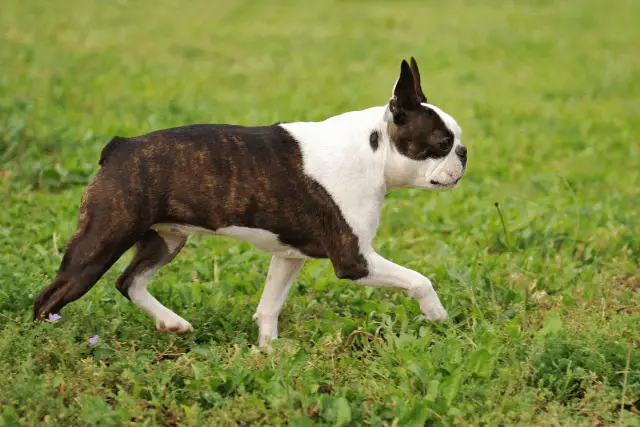
FUN FACT: Because they are such a well-mannered breed and have tuxedo-like markings, Boston Terrier is also known as “The American Gentleman.”
Training and socialization
Boston Terriers are known for their intelligence. Although they are quick learners, sometimes training a Boston Terrier can be a nightmare. These dogs can be extremely stubborn, so consistency and persistence are necessary when training them.
Training, as well as socialization, should start from an early age. These dogs are sensitive to their owner’s moods and tone of voice, so punishment can cause them to shut down. This is why the training should be motivational and filled with positive reinforcement.
Delicious treats are what make Boston Terriers interested in listening to you and your command.
Boston Terriers require exercise, but the amount of exercise varies from individual to individual. For these dogs, a few daily walks or sessions of fetch are a better choice than long, hard exercises. These dogs are bright, outgoing, and active dogs, always ready to play.
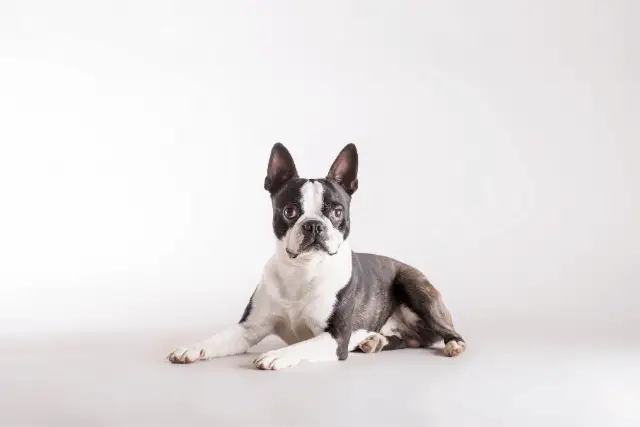
They are indoor dogs that need to be protected from extreme cold, as well as from very hot weather, as they can get overheated easily.
Boston Terrier - children and other pets
They are people-oriented dogs, and they thrive on human contact and attention. Boston Terriers make awesome family pets and companions. They go along great with children and other pets. And although they are small-sized dogs, Boston Terriers are protective of their family, and some of them make great guard dogs.
Because this dog is born to be with people, if left alone for too long, this dog tends to become frustrated and can develop undesirable behaviors, so make sure that your dog is always occupied with all kinds of toys for physical and mental stimulation.
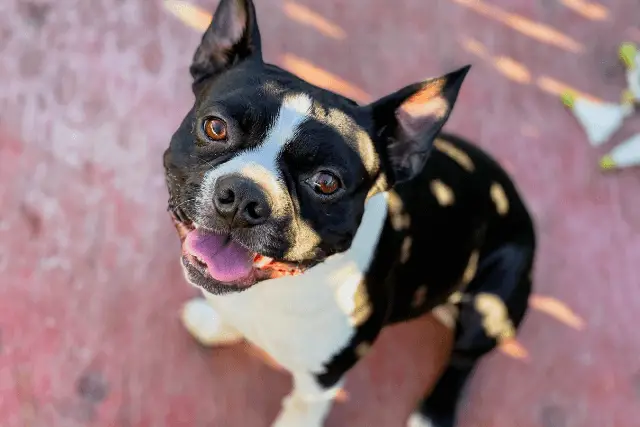
TIP: Because Boston Terriers can have serious respiratory problems, you should avoid using a classic collar and pulling the dog on the collar to get him to do what you want. You should always use a harness while walking your Boston.
Health issues
Boston Terriers are lively, funny, cheerful little dogs, ideal for families. Still, everyone getting a Boston Terrier should know that this breed is prone to suffer from all kinds of health problems, especially those related to the physical structure of the breed’s head, face, and body.
First of all, these dogs belong to a class of dogs called brachycephalic (dogs with short muzzles). This type of dog can suffer from several chronic breathing problems. Also, because of their short noses, Boston Terriers snort, snore, snuffle, wheeze, grunt, and often drool.
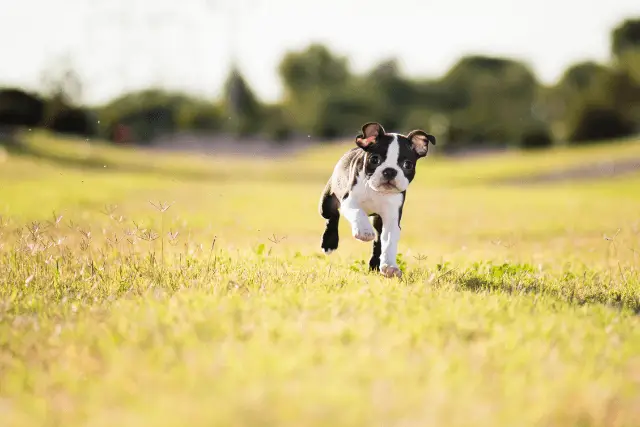
Some dogs have a delicate digestive system that causes them to fart a lot. But, once you figure out what food agrees with your dog’s digestive system (usually real meat and vegetables), gassiness is not a problem anymore.
Boston Terriers are prone to obesity, so make sure to monitor your dog’s meals and give him enough exercise.
FUN FACT: A healthy Boston Terrier has a long life expectancy of 11-13 years.
Boston Terrier - eye issues
Their eyes require special care. They are prone to suffer from many eye and eye-related problems, such as glaucoma, corneal ulcers, or cataracts. Cataracts can be early-onset hereditary cataracts and late-onset hereditary cataracts. Boston Terriers can be genetically tested for early-onset hereditary cataracts.
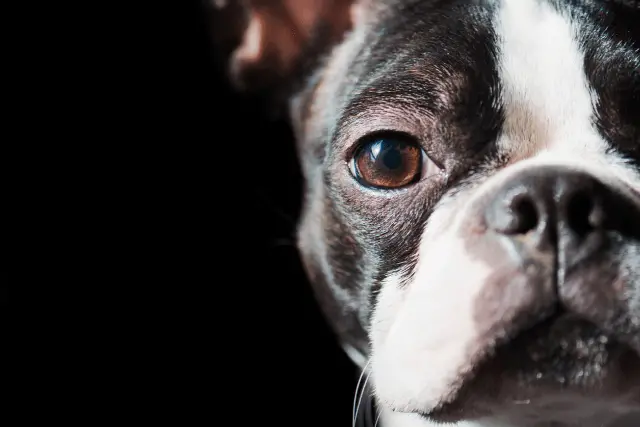
A lot of Bostons’ owners use saline eye drops daily in order to clean the dog’s eyes and flush out dirt and dust.
These dogs can also suffer from hereditary spine and joint diseases, such as luxating patella (when the kneecap is dislocated out of its normal location) or hemivertebrae (when bones of the spine are abnormally shaped – most commonly seen as so-called “screw tail” or “corkscrew tail” when tail bones are not shaped normally). Some other conditions Boston Terriers are prone to heart murmurs, deafness, brain tumors, etc.
SEARCH BOSTON TERRIER BREEDERS
World Dog Finder team

Updated at31.08.2023.
Breed History
The Boston Terrier is a heartwarming and charming small breed of dog originating in the United States of America. They are a relatively young breed that originated when Robert C. Hopper bought a dog from an American senator by the name of Edward Burnett. They are properly American; even their nickname is the American Gentlemen.
That dog wasn’t a pure-blooded dog, it was a mix between an English Bulldog and a white English Terrier. That dog’s name was Judge and later, it was known as Hooper’s Judge.
The breed instantly became popular among the people of Boston, and since this breed was actually made from 2 dog breeds, in the beginning, there was a lot of inbreeding involved while establishing the breed. You can clearly see the distinctive traits of these dog families that the American Gentlemen originated from.
They have the muscle structure and muzzles that are clearly from the Bulldog family, and they have longer legs and some terrier-like characteristics that are clearly from the Terrier side of their origin.
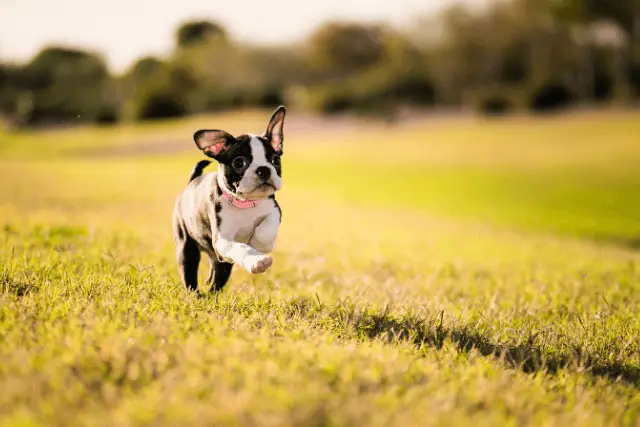
Origin of the name
In the beginning, this breed was named “Round-Headed Bull and Terrier” because of its original purpose. The English Bulldogs were used for blood sports such as dogfighting and bull-baiting, and it is believed that that was the original purpose the famous Hooper’s Judge was bought.
Luckily, nature took a different turn, and decided that this mixed dog would inherit the best characteristics of both sides. It had little aggression and a calm disposition, so the nickname American Gentleman came to life.
In 1891 this breed was renamed after the city of their origin - Boston, Massachusetts. That same year, the Boston Terrier Club of America was formed, and this breed held the position of the most popular breed in the USA for nearly 35 years, from 1904 to 1939.
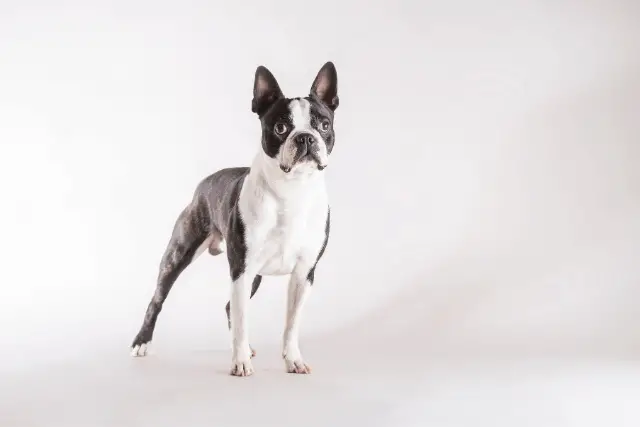
Father of the breed
After learning the way this breed came to life, it would be easy to conclude that random crossbreeding resulted in the creation of the Boston Terrier. However, the truth lies somewhere in between.
Mr. John P. Barnard Jr of Boston has most, if not the whole, credit in creating the Boston Terrier as we know it today. Mr. Barnard had a big kennel located in the middle of Myrtle Street and that street was the unofficial center for everyone interested in dogs and dog breeding. Mr. Barnard also employed a man who was the leading authority for Pitt dogs at that age, and his name was Tom Thornton.
This kennel was neatly situated over Mr. Barnard’s office, on the second floor and it was described as one of the best-arranged kennels of those days. That kennel revolved around breeding two dog breeds - the Bull Terrier and the Bulldog. All across Mr. Barnard’s kennel, there were pictures of leading dogs from both breeds. He took huge pride in breeding great dogs, and these “bullet-headed dogs” were a passion of his.
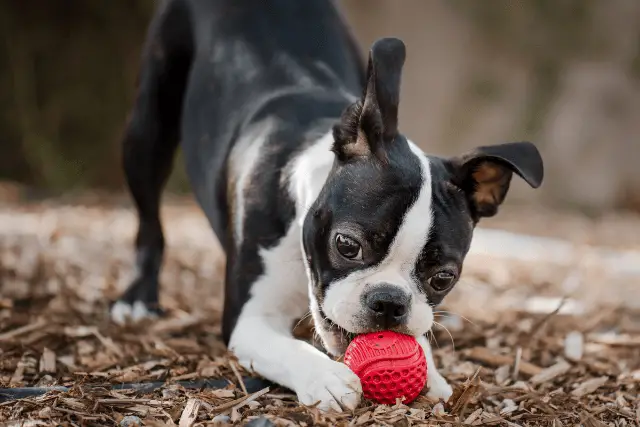
At that time, there was no doubt that the Boston Terriers' history started with Mr. Barnard’s kennel and work.
There was a heartwarming tribute written to Mr. Barnard by Mr. Edward Axtell, and in it, he says:
“Mr. Barnard has rightly been called the ‘Father of the Boston Terrier,’ and he still lives hale and hearty. May his last days be his best and full of good cheer.
I am now readily approaching the allotted time for a man. Still, I venture the assertion that were I to visit any city or even small town of the United States or Canada, I could see some handsome little lad or lassie leading one of Barnard Mike’s sons or daughters. Small wonder he is called the American dog.
The celebrated Dr. Johnson once remarked that few of our children live to fulfill the promise of their youth. Our little aristocrat of the dog world has more than done so. May his shadow never grow less.”
Growing popularity
After these beginnings, the breed’s popularity grew rapidly, but it was still mostly located in and around Boston. After the popularity started to move away from Boston, other breeders started to get involved and the focus was to bring the size of the breed down. In their effort to keep this breed pure-blooded, the breed became quite inbred. The breeders decided that it was a good idea to bring some dogs from England that were crossbred between the original English Bulldogs and English White Terriers.
Soon the picture of the ideal Boston Terrier started to emerge, and the most dominant features started to settle in this breed's DNA. There was a great and detailed record kept while creating these dogs, but it was unclear when exactly the French Bulldog was added to the mix. It is believed that French Bulldogs were added to the Boston Terrier gene pool for the same reason dogs have been imported from England - to lessen the inbreeding.
As the popularity grew, the unofficial breeders wanted to get recognition from the official association such as the American Kennel Club. They held a meeting and tried to organize the first breeding club, which they unsuccessfully tried to name “American Bull Terrier Club”. It is unclear why they tried to take this name and that certainly didn’t sit well with breeders of the actual Bull Terriers.
After that, they tried to rename it to “Round-Headed Terrier Club,” and that effort was also shut down.
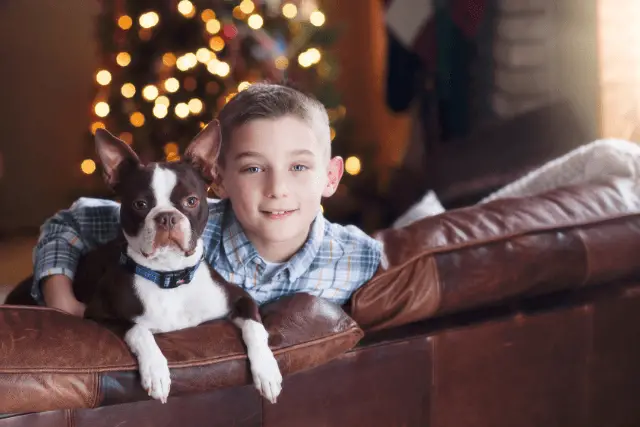
In the end, one of the leading cynology authorities of that time, Mr. James Watson came up with the Boston Terrier name. Subsequently, the name was approved, and the Boston Terrier Club of America became a full member of the American Kennel Club.
It is considered a great achievement that a handful of Boston breeders did in a span of 30 years. They developed the breed and made it popular across the United States of America, and all of that was achieved without the aid of TV, social networks, or the Internet.
In recent years, the American Gentleman is coming back to Europe and the UK. The demand is extremely on the rise and these dogs are stealing hearts across the old continent.
FUN FACT: The Boston Terrier has been the official mascot of Boston University for nearly 100 years.
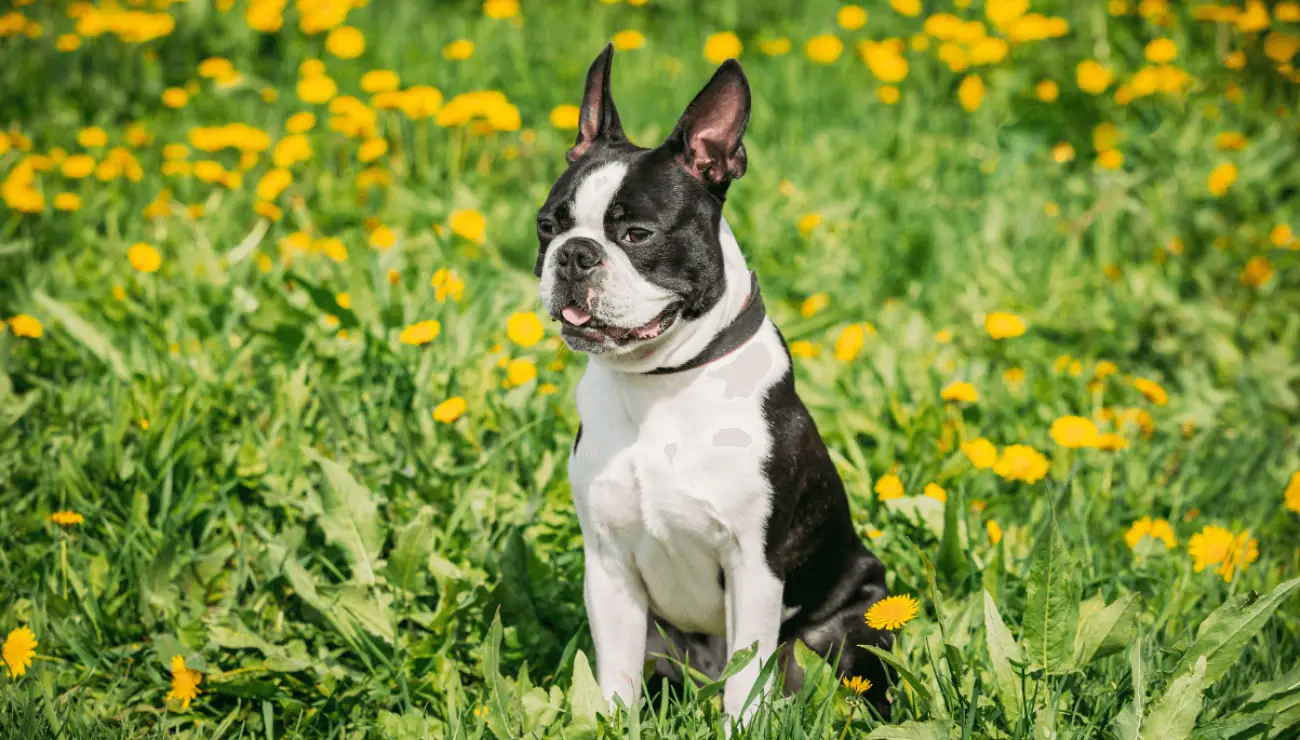
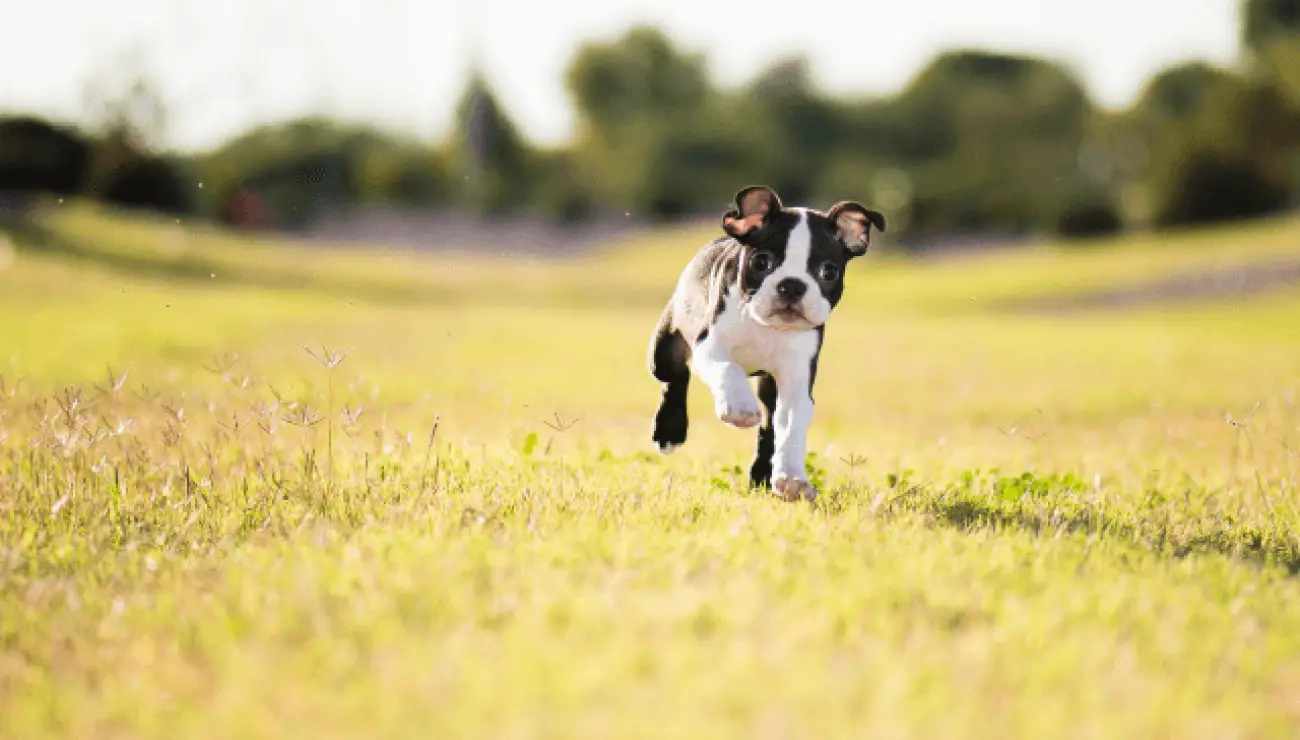
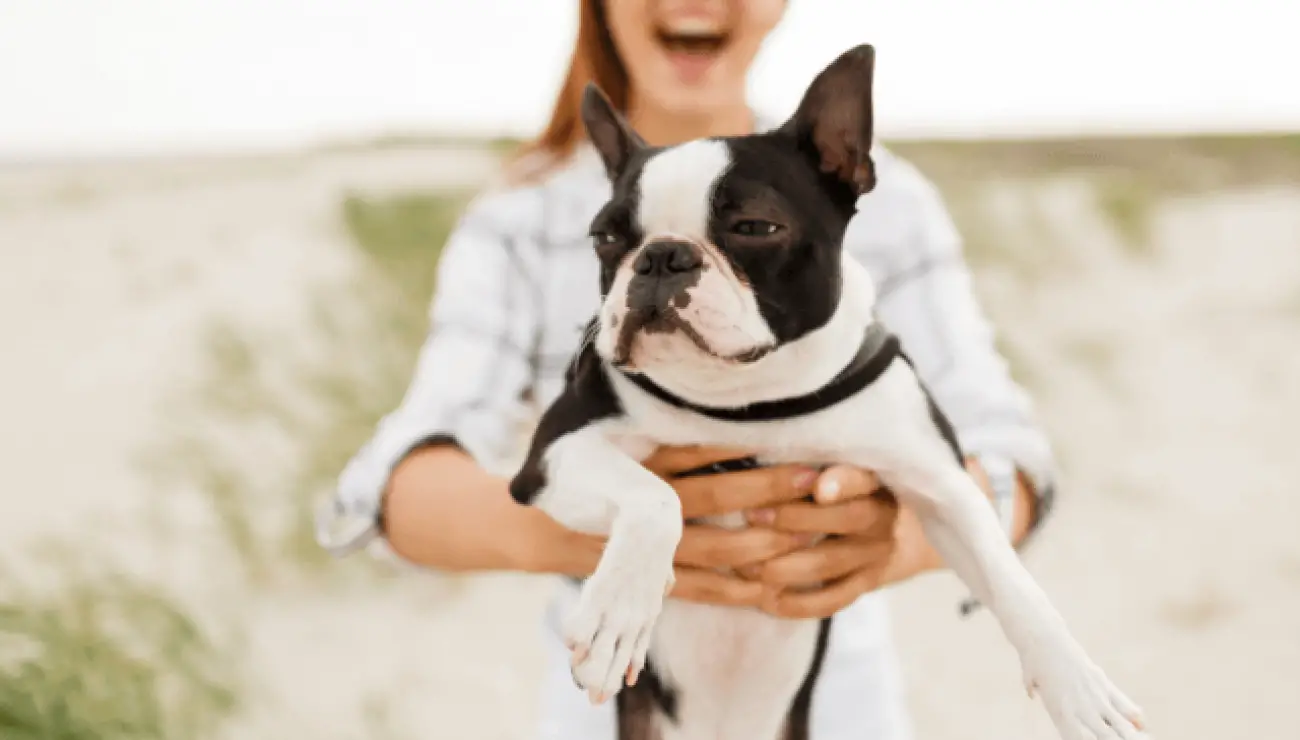
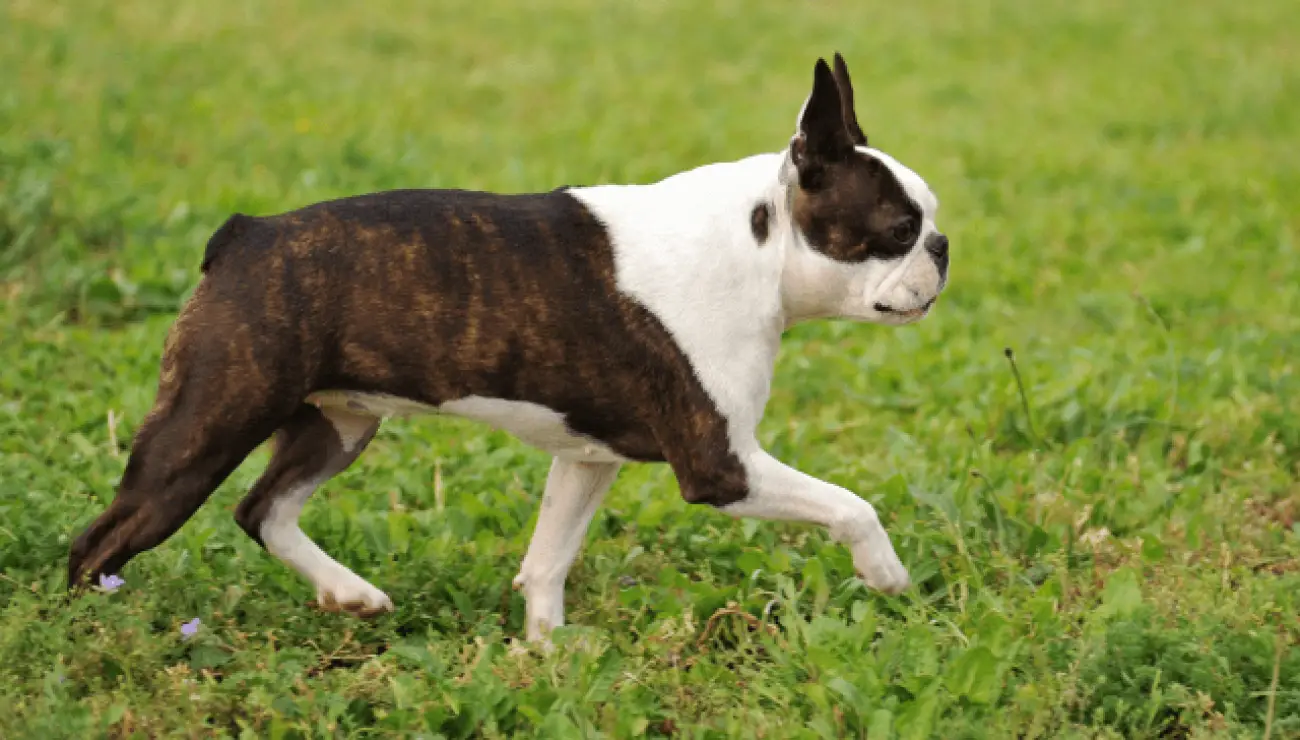
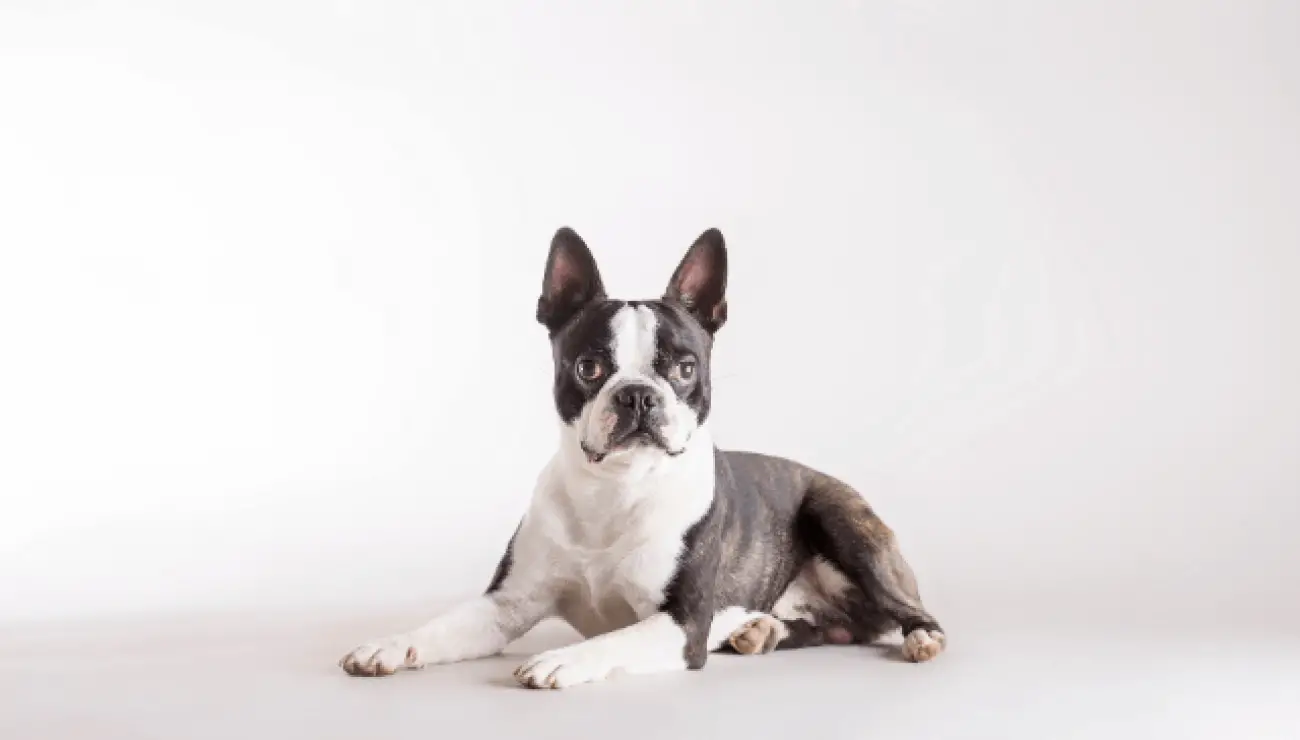
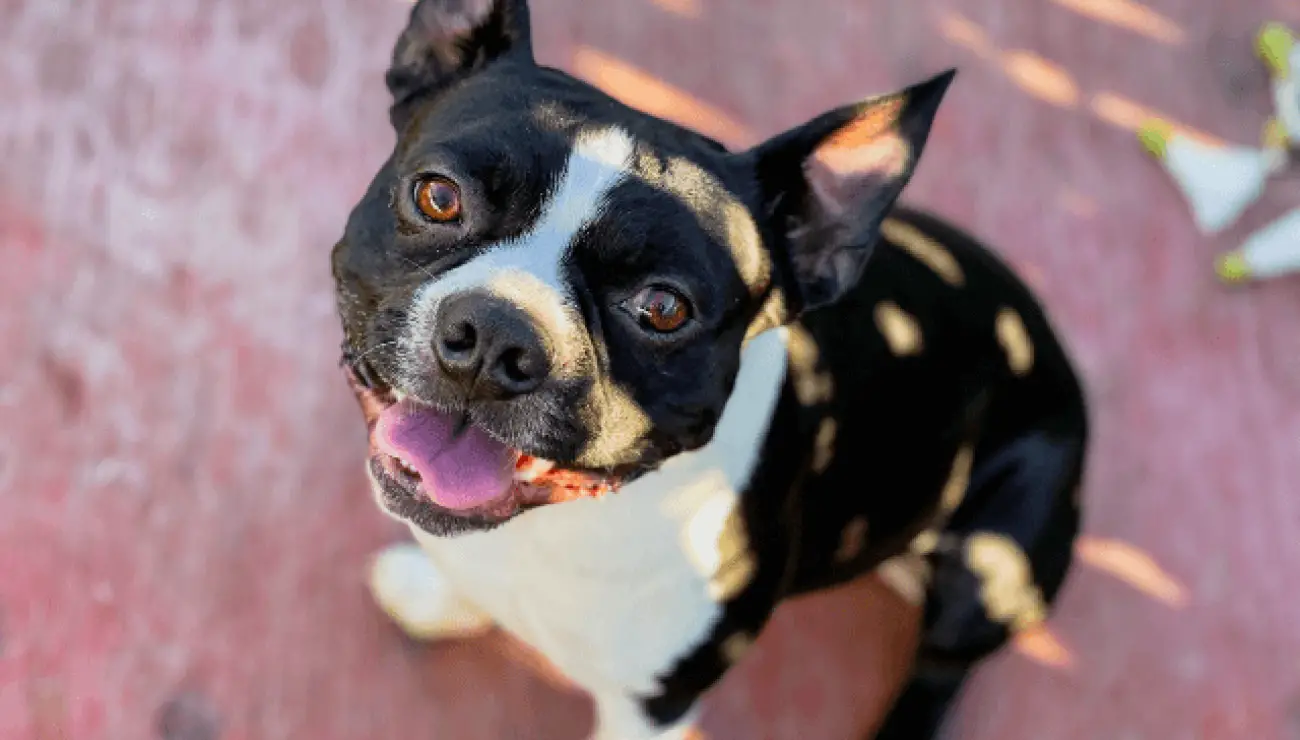
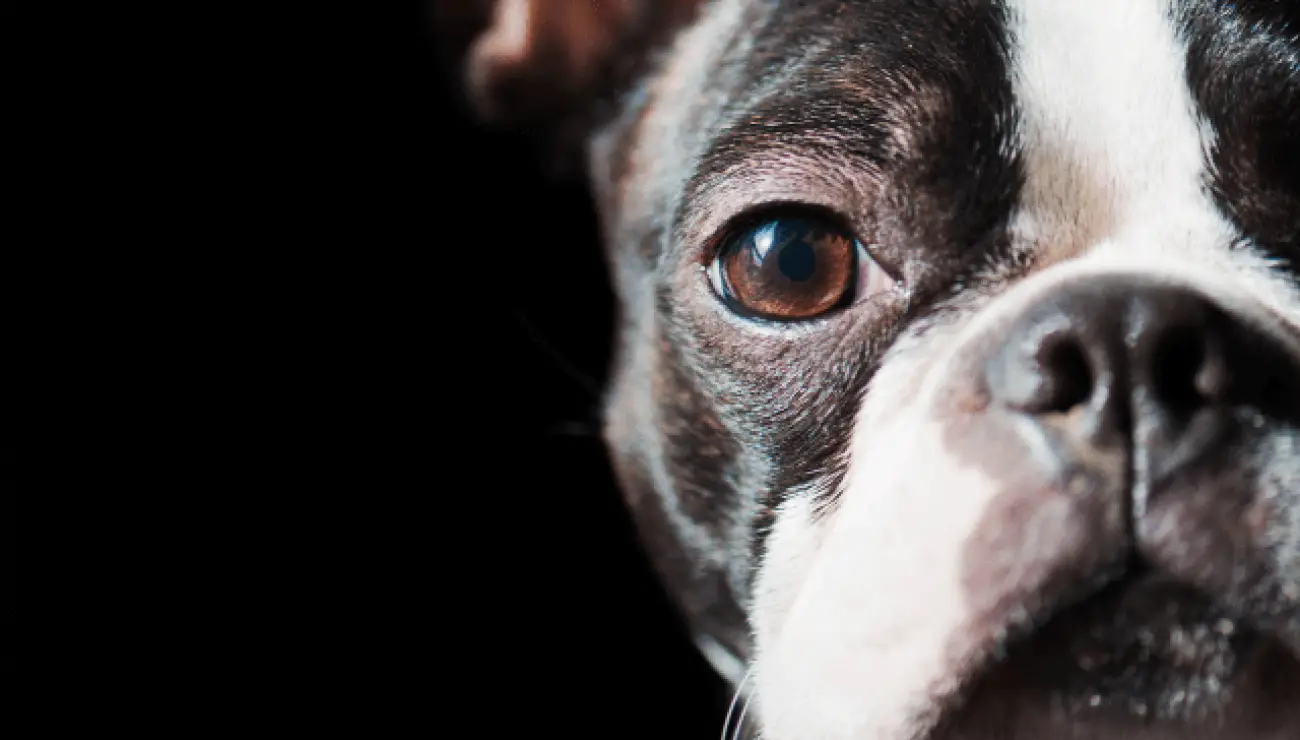
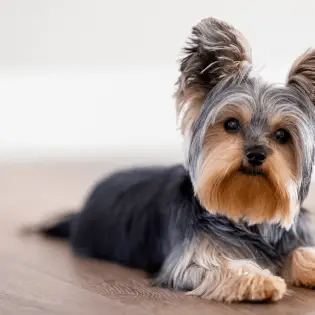
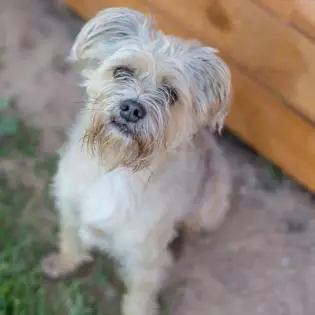
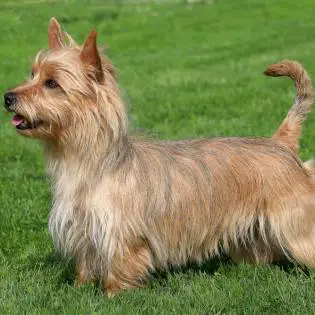
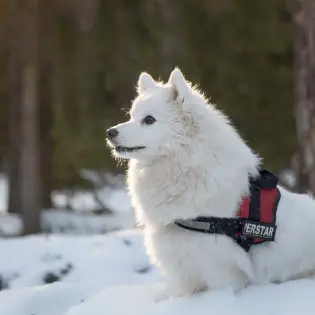
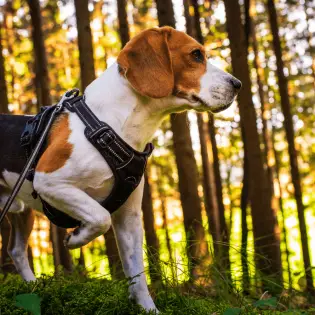
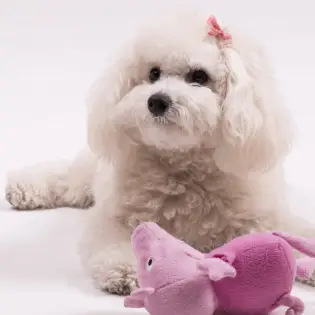
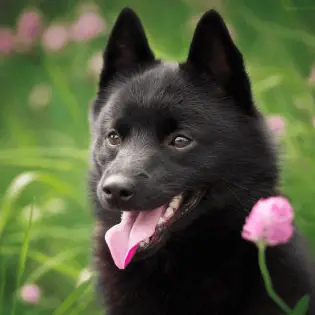
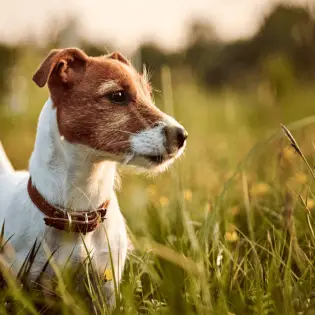
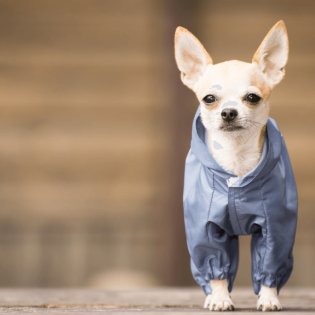
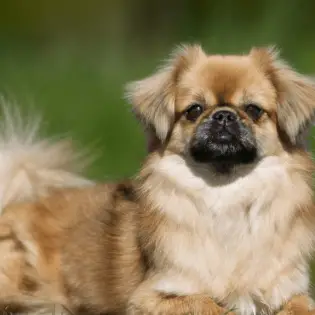

Share